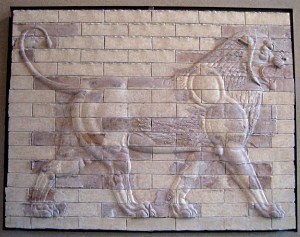 It’s often difficult to come up with names for characters. I’ve seen enough variations on Tolkein names to last me a lifetime, not to mention those based on movie characters and other SF/Fantasy series. But where can you go to find a name that’s different, but not overly so? How about from another culture, historical or otherwise?
It’s often difficult to come up with names for characters. I’ve seen enough variations on Tolkein names to last me a lifetime, not to mention those based on movie characters and other SF/Fantasy series. But where can you go to find a name that’s different, but not overly so? How about from another culture, historical or otherwise?
Beyond ‘Fred’ is an occasional series that provides lists of names from real-world cultures, both past and present. In other posts, I’ve covered everything from Italian to Ancient Egyptian. This time, we’re covering Persian names, ancient and newer.
An important note: I’m listing names that I think sound cool for rpg game purposes. I’m not worrying about historical accuracy. If you’re looking for a name for historical re-enactment, please check out my list of sources at the end of this post. I also don’t usually cover name meanings, but again, most of my sources list those. Finally, I tend to stay away from names that are currently in common usage. I figure if you were interested in those, you wouldn’t be looking at this list. 😉
[Photo courtesy of hsivonen via Flickr Creative Commons]
Ancient Persian Names
Male
- Aêtava
- Airyu
- Bêndva
- Byarshan
- Chamrav
- Dahâka
- Drâdha
- Datis
- Erezavant
- Erezrâspa
- Frâchithra
- Frânya
- Gaevani
- Gaomant
- Hanghaurvah
- Hvova
- Isvant
- Jannara
- Jishti
- Kaeva
- Karesna
- Mathravaka
- Mazdayasna
- Nanarasti
- Neremyazdana
- Paeshata
- Parshinta
- Ravant
- Sadhanah
- Sâma
- Stivant
- Taurvati
- Tura
- Usan
- Uxshan
- Vâgerezan
- Varâza
- Vyâtana
- Xexes
- Xshtavay
- Yima
- Zairita
- Zavan
Female
- Ahoo
- Amytis
- Atosa
- Banafsheh
- Dughdhô-Vâ
- Eredat-Fedhrî
- Franghâd
- Freni
- Ghazal
- Humayâ
- Hutaosâ
- Hvôv
- Jagkrut
- Kanukâ
- Khoshfarberan
- Lila
- Narges
- Narpestan
- Paêsanghanû
- Pouruchista
- Sarvenaz
- Thriti
- Tûshnâmatay
- Urûdhayant
- Ushtavaitî
- Uxshentî
- Vadhut
- Vanghu-Fedhrî
- Zairichi
- Zeheratzade
Newer Persian Names (19th century)
Male
- Abadi
- Adarvan
- ANOSH
- Bahadur
- Beramji
- Burzin
- Chaxshnush
- Cirrus
- Dadar
- Delir
- Dorabji
- Edalji
- Erach
- Erachsha
- Fardunji
- Firdous
- Freortis
- Gashtaham
- Goberu
- Govad
- Hardar
- Hirji
- Hutan
- Isatvastra
- Ishvat
- Izadyar
- Jahandar
- Javidan
- Jehangir
- Kai
- Kavas
- Kurush
- Mahdat
- Mervanji
- Mohor
- Nadarsha
- Nevazar
- Nima
- Nush
- Omid
- Orvadasp
- Palash
- Pishkar
- Puladvand
- Raham
- Rashna
- Rushad
- Sahi
- Shahen
- Surin
- Tahmtan
- Temulji
- Tizuarshti
- Ukarji
- Ushah
- Ushedarmah
- Valash
- Varshasb
- Vaspar
- Wehzan
- Yadgar
- Yazad
- Yima
- Zal
- Zand
- Zirak
- Zurvan
Female
- Abanhir
- Aimai
- Arzu
- Avabai
- Bahar
- Banubai
- Behruz
- Chaman
- Cheherazad
- Deldar
- Dinaz
- Dinbanu
- Farida
- Franak
- Friyana
- Gohar
- Gulbai
- Gilshan
- Homa
- Hormazbanu
- Hutoxi
- Iranbanu
- Irandokht
- Jahanaray
- Jarbai
- Javaneh
- Kaniz
- Khubrui
- Khushnam
- Lalagul
- Laleh
- Lilya
- Mahzarin
- Meherbai
- Morvarid
- Narenj
- Nezhat
- Nilufer
- Omid
- Oranous
- Orkideh
- Parendi
- Parvin
- Puyendeh
- Rambanu
- Roshni
- Ruhae
- Samannaz
- Shirin
- Sudabeh
- Tehmina
- Thrity
- Tishtar
- Ushtavaity
- Vahbiz
- Vira
- Virbanu
- Yasmin
- Yazdin
- Yazdindokht
- Zarin
- Zer
- Zoish
Sources
- Arabian Nights/Ancient Persian Names (Girls)
- Ancient Persian Girl Names
- Avesta names; Old Persian names
- Original Persian Names
- What are Your Favourite Ancient Persian Names?

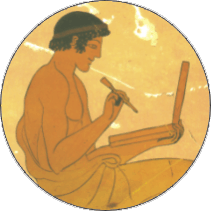

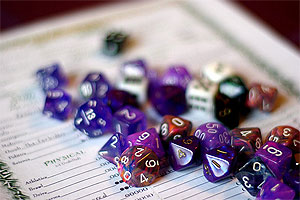

![Reblog this post [with Zemanta]](http://img.zemanta.com/reblog_c.png?x-id=cd2b278a-7304-4b9a-acd8-18cdb5fb1a84)
 Your GM picked out the adventure, did all of the background work, fleshed out the NPCs, balanced treasure and other rewards. Now it’s finally time to run the adventure, it’s up to the GM to find a way to motivate your character. Right?
Your GM picked out the adventure, did all of the background work, fleshed out the NPCs, balanced treasure and other rewards. Now it’s finally time to run the adventure, it’s up to the GM to find a way to motivate your character. Right?![Reblog this post [with Zemanta]](http://img.zemanta.com/reblog_c.png?x-id=a9c48f1d-d82d-420c-9b2b-01fcf956e82a)
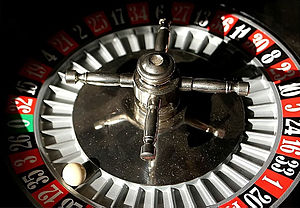
![Reblog this post [with Zemanta]](http://img.zemanta.com/reblog_c.png?x-id=39df50c0-4c5f-4ab0-aee6-21206c1efc57)
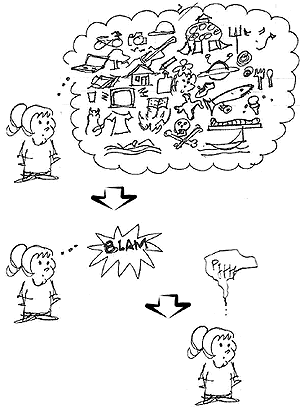 Sometimes a good background is hard to find. Usually I have no trouble coming up with a full-fledged past for my characters, complete with NPCs, subtle plot hooks, and flaws ready-made for the GM to exploit. Usually, I hand the GM a six-page character questionnaire loaded with personality quirks and background events.
Sometimes a good background is hard to find. Usually I have no trouble coming up with a full-fledged past for my characters, complete with NPCs, subtle plot hooks, and flaws ready-made for the GM to exploit. Usually, I hand the GM a six-page character questionnaire loaded with personality quirks and background events.![Reblog this post [with Zemanta]](http://img.zemanta.com/reblog_c.png?x-id=538bddec-184d-4db4-b411-9c125ed451b3)
 I myself have 12 hats, and each one represents a different personality. Why just be yourself?
I myself have 12 hats, and each one represents a different personality. Why just be yourself?![Reblog this post [with Zemanta]](http://img.zemanta.com/reblog_c.png?x-id=16c95a62-9a4c-4e6b-8f7d-406d93287d7a)
 So with a missing GM, you’re going to have to cancel the game for tonight, right?
So with a missing GM, you’re going to have to cancel the game for tonight, right?



